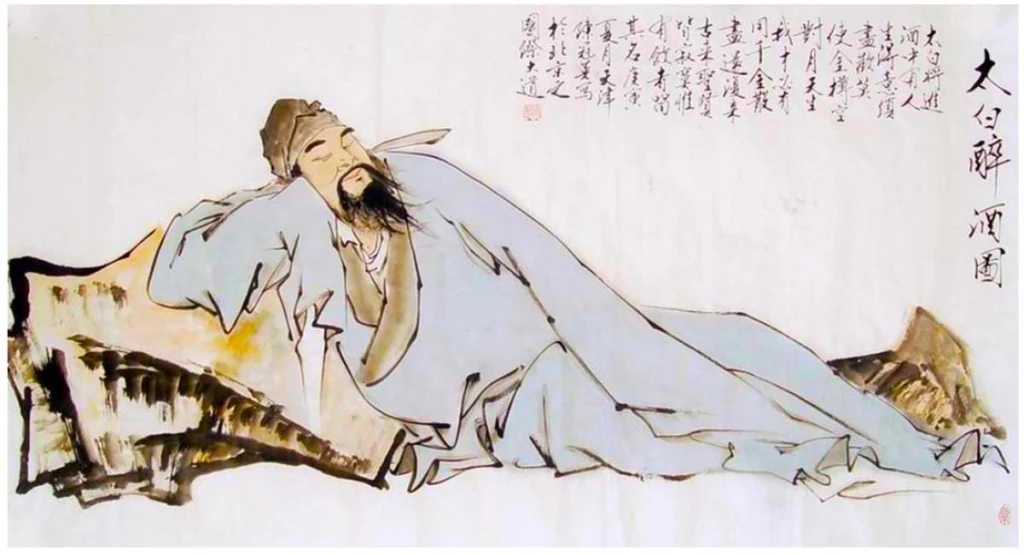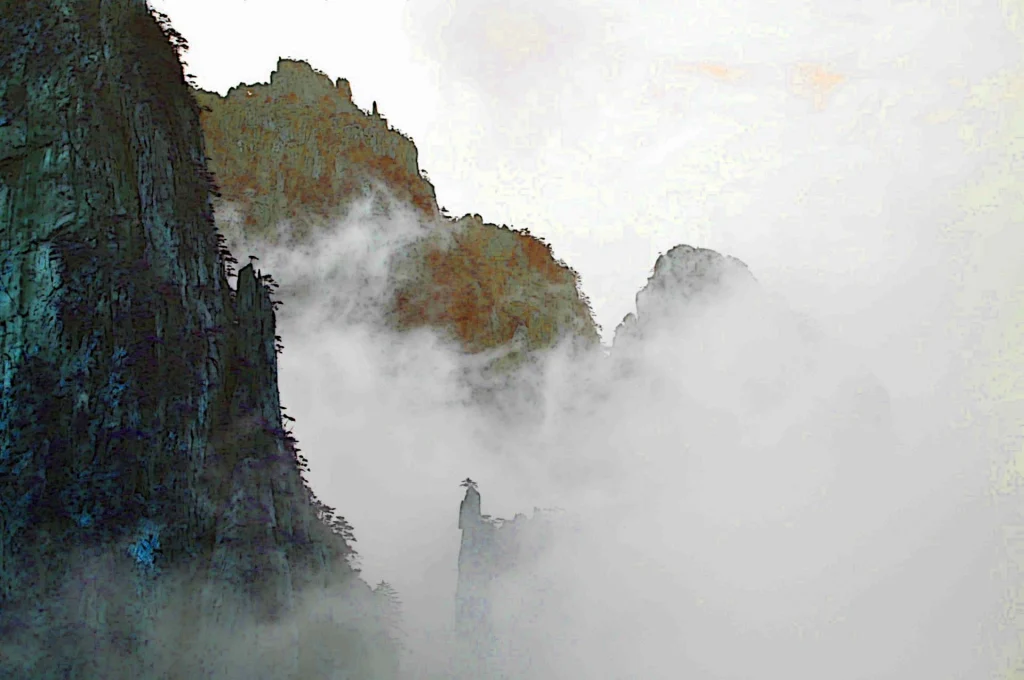Sunlight shines on Lushan, in a purple haze,
From afar, like a veil, a waterfall hangs.
Water cascading three thousand feet from the sky,
Is the Celestial River falling from heaven on high?
756, Awaiting My Fate
Li Bai’s diary, had he kept one, might have gone something like this.
“In the 12th month of the 43rd year of reign of our most illustrious Emperor Xuanzong
(December of 755)
General An Lushan has declared himself emperor of Northern China.
In the 5th month of the 1st year of the reign of Emperor Suzong.
(May, 756)
Chang’an has fallen and the emperor and his imperial court have fled to Sichuan. The imperial consort Yang Guifei (楊貴妃) is dead.
Emperor Xuanzong has abdicated. I have been attached to a military expedition headed by Prince Li Lin (the 16th son of Emperor Xuanzong’s 30 sons). Events are not going well. and his son Prince Li Heng declared Emperor Suzong. Prince Li Lin has failed to establish his own kingdom. He has been executed. I too am suspected of disloyalty to the new emperor and I am imprisoned at Jiujiang. My fall from grace is as high as the waterfall of Lushan before me and my fate as clouded as its purple haze.”
Li wrote two poems about Mt. Lushan’s waterfall. This is the shorter of the two.
Metaphors and Meaning
Mt. Lushan is an obvious reference to General An Lushan who is the cause of Li Bai’s woes. The Celestial River, our Milky Way Galaxy, pours forth a river of fiery stars and unrelenting troubles. The color purple represents imperial authority. The waterfall hanging like a veil, uncertainty.
Notes on Translation
The Title
Wàng lúshān pùbù, 望庐山瀑布. Gazing at Lushan’s waterfall. 望 wàng, meaning gazing at or viewing, has a secondary meaning of hope, which expresses Li Bai’s hope that he might be spared. 山 shān is the character for mountain. The two Chinese characters for waterfall 瀑布, pù bù, are themselves a neat rhyme.
The Poem
Lines one, three, and four rhyme – yān, chuān, and jiŭtiān. Line three has an internal rhyme – sān qiān.
Xianglu (香炉) in line one refers to a particular peak on Mt. Lu (Lushan) that in English translates as “incense burner”. Perhaps because of this, Li Bai mentions the purple haze that emanates from the peak in sunlight.
The last line is packed with metaphors. 疑是 yí shì, literally I suspect or believe it to be; which refers to 银河 (yínhé), literally “Silver River,” or often “Celestial River” (tiānhé). And where does this river fall (落 luò) from?
九天, jiŭtiān, the ninth and highest level of heaven. “Heaven on high” is a suitable English poetic interpretation. In the midst of the haze, Li is certainly anticipating his own fall 落 luò from “heaven on high”.
Li Bai, once the darling of the Imperial Court, has fallen from a dizzying height.













